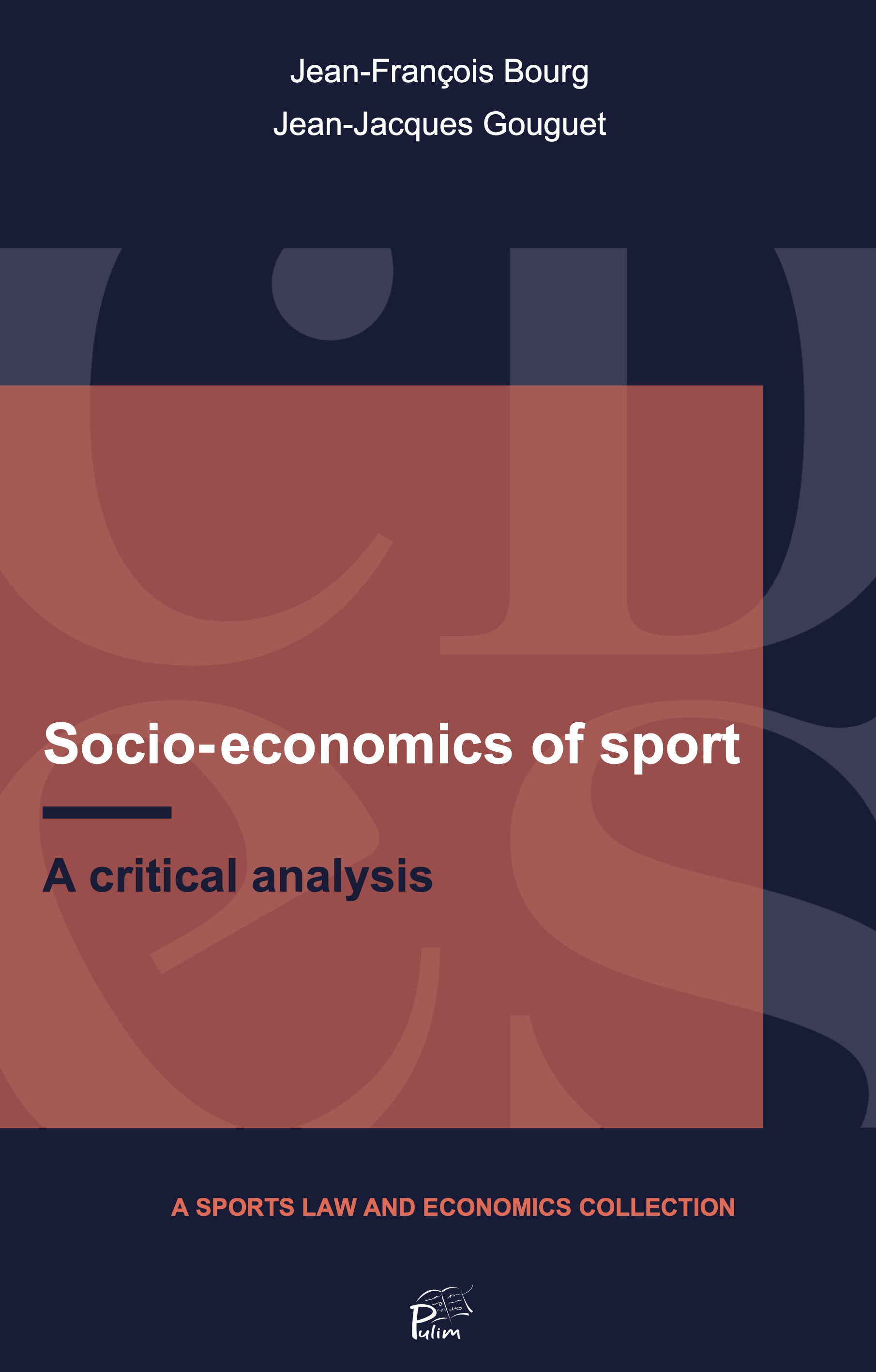Introduction
Chapter I – The sporting institutions
- Amateur sporting clubs: what economic model?
- European professional sporting leagues: institutions at the heart of a sporting logic?
- North American professional sports leagues: institutions at the service of a financial logic?
Chapter II – The financing of professional sport
- Stock market listing: a development lever for sports clubs?
- Club deficits: structural financial instability?
- Sports stadia (mega): what legitimacy for public funding?
- Financial Fair Play: a tool for regulating clubs' financial management?
- Naming: a new financial opportunity for clubs?
- Club owners: Capital at the service of sport?
- Televised sport: broadcasting rights and tele-dependence?
Chapter III – The Glorious Uncertainty of Sport
- Competitive balance: what challenge to a central concept of sports economics?
- Luxury tax: economic solidarity and uncertainty of outcome?
- Regulation: how to reconcile balanced sports competition with fair economic competition?
- Rookie Draft: allocating new talent, balancing competition and maximising profits?
- Salary cap: sporting regulation or financial regulation?
Chapter IV – The Professional Sport labour market
- Sports agents: what market power?
- Bosman ruling: market deregulation and destabilisation of competition?
- Segmentation: why is the professional sports labour market so highly segmented?
- Superstars: why does the winner take all?
- Tournament theory: can we guarantee the best performance of athletes?
- Third-party ownership: a controversial instrument?
- Transfers: must the system be reformed?
Chapter V – The Internationalisation of Sport
- Global public good: a choice between two models for a new global governance of sport?
- Macroeconomics of international sporting success: How to win medals?
- Globalisation of sport: the domination of an economic logic?
- Soft power: the political instrumentalisation of sport?
Chapter VI – The Economic Impact of Sport
- Opportunity costs: what policies should be applied to major sports projects?
- Sport employment: what assessment of the job creation potential of sport?
- Legacy: what is the long-term impact of mega-sporting events?
- Economic impact: developing a standard methodology?
- Economic weight of sport: a very imperfect assessment?
Chapter VII – The social functions of sport
- Volunteering: how to assess the value of volunteering in sport?
- Costs/benefit: towards the recognition of complementarity between quantitative and qualitative approaches to sport?
- Evaluation: what decision-making tools should be used at the heart of sporting policies?
- Externalities: how to define and internalise the effects of sporting events?
- The Future of Sport: What sport in a world of degrowth?
- Social utility: how can the social functions of sport be measured and recognised?
- Value: a new tool to help decision-making around the total economic value of the sporting spectacle?
Chapter VIII – Sporting abuses
- Doping: an attached product of competition?
- Economics of crime: what are the shortcomings of orthodox economic analysis of sporting abuses?
- Sporting exception: what are the specificities of sport?
- Taxes: an effective instrument to fight against the failures of sports markets?
- Winner's curse: can we avoid the "curse of the winner"?

